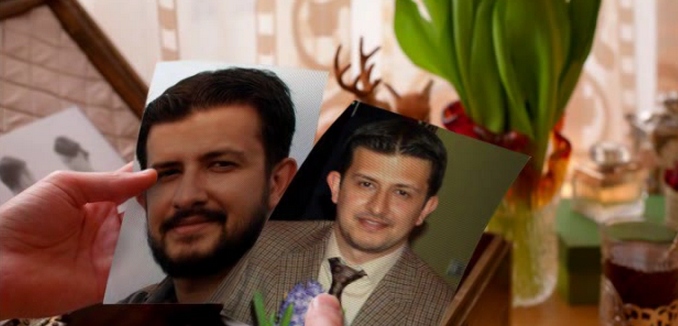A letter written by Iranian dissident Emad Bahavar that was recently smuggled out of the country’s notorious Evin prison paints a grim picture of the conditions under which political prisoners are held in the Islamic Republic. The contents of the letter casts doubt on Iranian president Hassan Rouhani’s widely-assumed ability to moderate the more reactionary elements of the Iranian regime. If anything, according to Bahavar, the Iranian justice system may have grown even harsher since Rouhain’s election last year.
Last week, in an editorial, Rouhani’s Republic of Fear, the Wall Street Journal published details from the letter, in which Bahavar last week’s “raid” on his prison ward by members of the Revolutionary Guard and the intelligence ministry.
“It feels as though pain has engulfed my entire body,” Mr. Bahavar writes. “They covered our eyes and cuffed our wrists. . . . They lined us up in the Ward 350 corridor, our faces to the wall. I could hear some crying in pain. . . . They started beating our backs very severely with batons. The screaming and crying got louder.”
The security forces next formed a “tunnel” running from the ward’s main entrance to a minibus outside, according to Mr. Bahavar. The guards, some uniformed and some wearing civilian clothes, beat the prisoners as they ran down this tunnel. “The whole route . . . was covered in blood,” Mr. Bahavar reports. The minibus drove some of the prisoners away, while others like Mr. Bahavar were returned to the ward and eventually allowed to see a prison medic.
Bahavar, who is serving a ten year sentence for his activities as part of Iran’s Green movement, was originally a supporter of Rouhani, but after last week’s beating he concluded about the regime that “the hatred in their black hearts is much greater than the Greens’ kindness and forbearance.”
The editorial observes that a government that “can brutalize political dissidents as a matter of routine can prove reasonable at the nuclear negotiating table,” but counters that “we wouldn’t count on it.”
Almost immediately upon assuming office, Rouhani appointed Mostafa Pour-Mohammadi – nicknamed “Minister of Murder” for his role in carrying out thousands of summary executions in the late 1980’s – as his justice minister. Iran has experienced a spike in executions prompting criticism form rights groups, the United Nations’ special rapporteur on human rights in Iran, and the U.S. State Department. The increase in executions was cited as a reason U.N. Secretary General Ban Ki-Moon declared in March that Rouhani had “not made any significant improvement” in ending rights abuses in Iran.
[Photo: hamid mafi / YouTube ]




